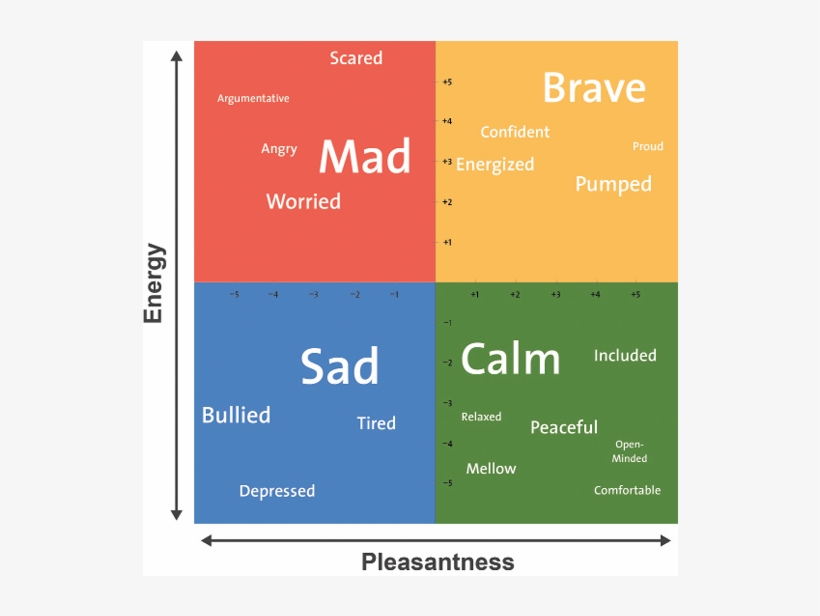
Trust and team spirit are a core aspect for a team to be successful in the long term. It is a critical indicator of cohesive teams. When people join teams where there is a high level of trust and positive team spirit, they become attached to the team and do not want to leave the job, even if other job factors are not motivating.
Why trust and team spirit matter?
In 2013, I researched how the team climate impacts team reflexivity and motivation and, therefore, team performance. The study sample was composed of 405 participants who were members of 120 teams in Spanish bank branches. It was a longitudinal quantitative study with three data collection times. The results indicated that team mood was positively related to team motivation and reflexivity, which in turn were positively related to team performance.
Positive team mood
Team motivation
Team reflexivity
Team performance
There is research that indicates that in high-trust environments, people show up and do their best work. People who are proud to be part of a team are more motivated to create better results. Moreover, individuals feel confident in themselves and each other and, at the same time, they have a greater sense of vulnerability. If they make a mistake, team members will support each other so that everyone can learn from it and find the potential for growth. In high-trust environments, team members know what is expected of them and what they can expect in return, they can share information freely, collaborate and leverage one another’s skills and abilities.
The model of the Five Dysfunctions of Teams also supports the importance of trust. This model shows how the absence of trust, as the core dysfunction of the team, impacts and escalates to other dysfunctions.
The absence of trust occurs when people have distanced relationships with one another and are reluctant to be vulnerable to each other. In this environment, it is impossible to admit mistakes, talk about personal weaknesses, or receive critical feedback. Therefore, there is also a struggle to ask for help and support. There might be also a high level of fake politeness.
The absence of trust leads to fear of conflict because people are unwilling to take part in open discussions or constructively argue about ideas. This can lead to weak decisions and the inability to talk about important issues. Therefore, the fear of conflict leads to a lack of commitment. Without debates, it is extremely difficult for team members to truly commit to decisions because they don’t feel that they are part of the decision process. When teams don’t commit to decisions and actions, peer-to-peer accountability may suffer or not work at all. As a result, it leads to inattention to outcomes because no one really cares about the collective team output.
(Graphic from – https://www.tablegroup.com/books/dysfunctions)
It is clear that trust and team spirit matter. It is the base for other team processes like communication, cooperation, sharing, decision making, and resolving conflicts, fundamental for a team’s ability to be productive and create results, and moreover for an individual’s motivation to be part of the team in the long term.
More info at https://www.tablegroup.com/imo/media/doc/Conquer_Team_Dysfunction.pdf
How to facilitate team spirit and trust?
Before giving tips and exercises, some important aspects will be described that can influence the whole process of team spirit and trust:
- Previous experience working together or with certain members of a team (e.g.: unresolved issues between team members, bad experience in resolving conflicts);
- Role of a leader (e.g.: a leader who is a great example, able to be vulnerable, listens to people’s needs vs. leader who cares mostly about results and does not value trust or team spirit as essentials);
- Personal characteristics – There will be a difference in facilitating trust and team spirit in teams with more extroverts or more introverts. Introverts may need a longer time and deeper conversations to facilitate trust whereas extroverts often need challenges and action to feel trust and build team spirit.
- It is an ongoing long-term process – Trust and team spirit are processes, not a result, and it is crucial to take care of and be aware of this process all the time.
Tips and exercises:
- Be truly interested in people. If you do not know how to relate to the person, find a common interest or a value. It is much easier to build trust if you focus on what is similar to you rather than what is different;
- Find opportunities to spend more time together face-to-face. One of the biggest challenges for trust-building in a team is the lack of time spent working collectively. This can include brainstorming sessions, strategic planning sessions, and social activities. Avoid the temptation to
“save time” at the expense of improving productivity by building a stronger team;
- Initiate every meeting or conversation with a personal question like “How do you feel?” (I will explain below how to make this question more meaningful), “What do you think about … ?”, “What was the best thing that happened to you last week?” – there are many questions to open up sharing, however, ask them in a way to show that you truly what to hear the answers; and
- Spend time team building – one of the most important things to do. Give everyone a chance to get to know each other on a personal level. Make time to understand each other’s strengths and challenges in communication and cooperation, facilitate positive teamwork experiences (preferably including face-to-face time), reflect on what it is like to work in the team and create shared principles for effective teamwork and support systems.
How to talk about “How do you feel?”
The Yale Center for Emotional Intelligence has created a great tool to help people talk about emotions and feelings (http://ei.yale.edu/ruler/ruler-overview/). I use this tool in teams and training, and I have seen it help people better understand themselves and others. The main idea is to check where you are on the scale of pleasantness and energy. Understanding the root of the emotion can create a higher level of empathy, trust, and cohesiveness.

(Graphic from http://ei.yale.edu/ruler/ruler-overview/)
How does this apply to being a trainer?
My experience shows that the facilitation of team spirit and trust has to be seen as a process. There have to be daily routines (even some little things – like time for joking, time for personal conversation, time for appreciation). Besides that, there also has to be some time for “more serious or deep” interventions – like personal and honest feedback, team building, supervision, informal time spent together. Even if it is only one-week training, trust and team spirit matters. Many times, I have seen situations when there is a lack of trust and team spirit in a team of trainers and somehow it clearly impacts the group in the same way. I have also seen that while trainers in non-formal education seldom forget ice-breaking activities and ensure that team members get to know each other better, when working with a group, they often forget to do it between themselves.
Being aware of the importance of trust and team spirit, means you may reflect on how much attention you pay to it in your team of trainers or in the group you are working with. Do not take trust and team spirit for granted in teams of trainers.
Reflection Questions
Team level questions (share answers to each other):
- What do you need from others to feel trust in a team?
- What does team spirit mean to you?
- What specifically could you do before the training and during the training that could increase trust and team spirit?
Individual-level questions:
- Have you experienced the impact of a positive team spirit? How was it?
- How can trust be broken in a team?
- What does it take to rebuild the trust after it has been broken?
- What helps to increase the level of trust and team spirit in a group of trainees?
“A team is not a group of people who work together. A team is a group of people who trust each other.” – Simon Sinek
“It takes both sides to build a bridge.” – Frederik Neal
“Trust is like blood pressure. It’s silent, vital to good health, and if abused it can be deadly.” – Frank Sonnenberg






